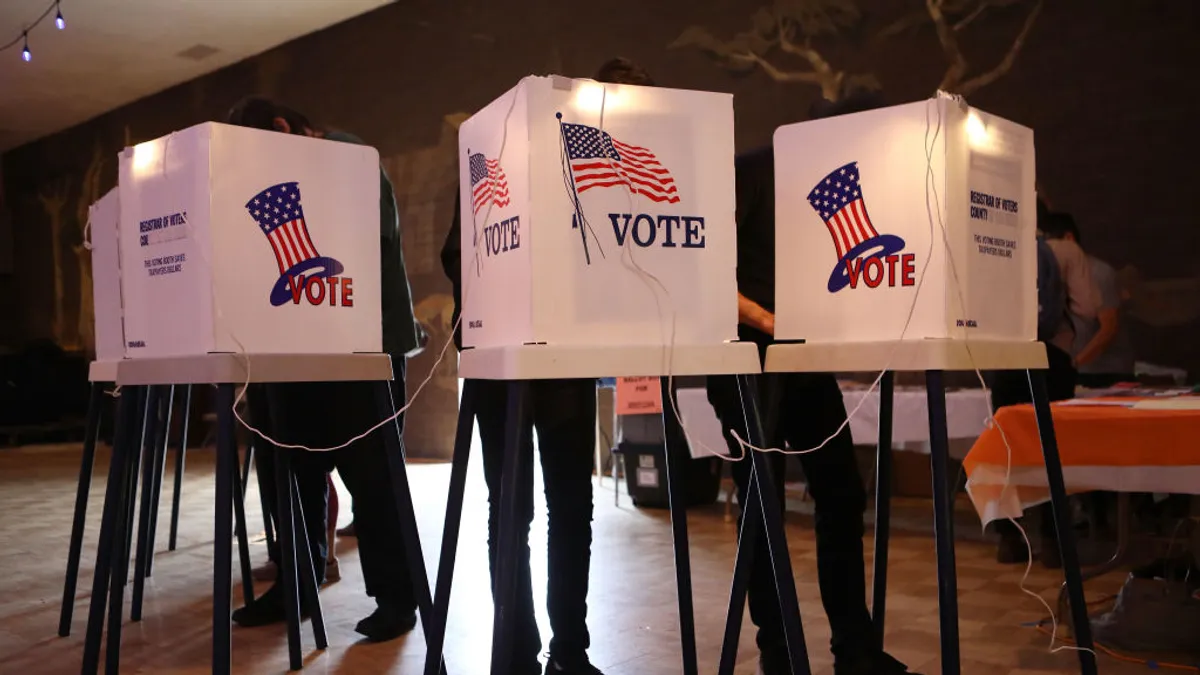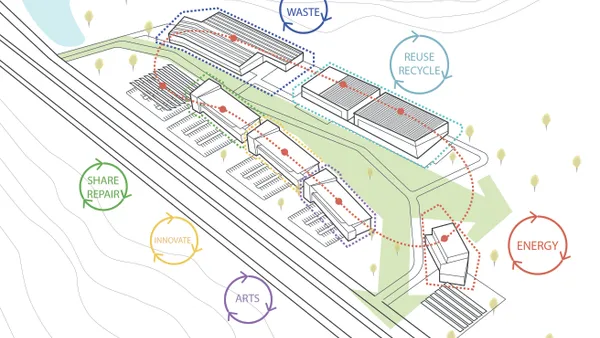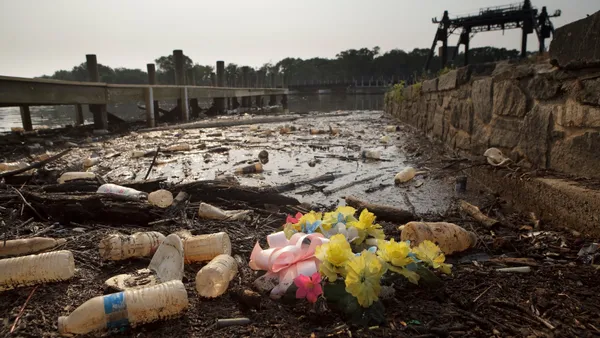Dive Brief:
- U.K service provider Business Waste has been gaining attention for its recent calls to start taxing plastic straws as a way to limit their use, as reported by BBC News.
- In a post on their website, Business Waste advocates for a 5-pence tax on straw use modeled after England's plastic bag fee. "We’d love to see the plastic drinking straw phased out completely within the next couple of years," said spokesperson Mark Hall in the post. "They are pretty much the ultimate in human wastefulness, and a problem that can so easily be solved with very little effort."
- In the U.S., actor Adrian Grenier has also been drawing attention to the issue through his recently launched Strawless Ocean initiative. Grenier's Lonely Whale Foundation has promoted this on social media platforms — using the hashtag "Stop Sucking" — with videos of Grenier and others getting "sucker punched" by an unidentified sea creature tentacle as they drink from plastic straws.
Dive Insight:
The prevalence of single-use plastic straws is hard to track, but according to an oft-cited statistic from Eco-Cycle an estimated 500 million of them are used in the U.S. every day. Environmental groups often note the effects the role these straws play in marine plastic pollution and have called to ban or limit their use. Potential alternatives include straws made from biodegradable or reusable material. People can also request that their bartenders, servers or baristas hold the straw entirely.
Passing and implementing any type of tax or fee policy for straws could be difficult in the U.K., let alone the U.S., but recent sentiments are trending in that direction. England noted a sharp decline in plastic bag usage after enacting a 5-pence fee last year and advocates have recently been calling for more action around plastic bottle waste. This attention toward single-use products has led to new collection pilots for coffee pods and coffee cups in London as well.
The type of activism touted by Business Waste around straws — and many other topics — is less common among U.S. service providers. Though energy around packaging regulation continues to grow in the country. California has considered legislation and a potential extended producer responsibility program to address plastic waste this year. New York City also recently reaffirmed plans to ban expanded polystyrene food containers, and activism around bag ordinances and container regulations continues in New England. Like some of these items, straws may comprise a small portion of the waste stream but they have the ability to capture outsized attention if advocates continue making them an issue.













